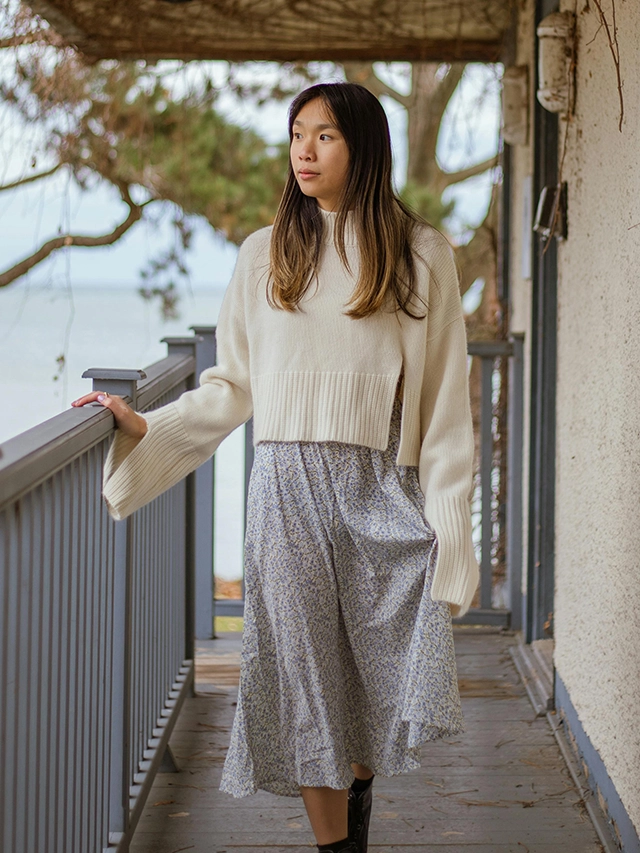Last Updated on May 10, 2024 by Ryan
Extend the lifespan of your clothes because besides causing much harm to the environment, fast fashion is also encouraging a disposable mentality among consumers. Instead of treating clothes as an investment, many are now regarding them as mere expenses. They have no qualms about wearing their purchases only once or twice, arguing that these clothes are inexpensive anyway. They fail to realize that they are actually on the losing end when they opt for cheap yet poorly made items.
To understand why this wasteful attitude is problematic, you must know the difference between an investment and an expense. Simply put, the former will give you something back in terms of its value, while the latter will drain your pocket.
Ethically made and sustainable clothing may be a bit pricier, but they offer numerous benefits in return. You can wear them multiple times while maintaining their durable quality, which means more savings in the long run. They also boost your confidence because they look and feel better. On the contrary, fast fashion garments fall apart after a couple of wears, so you end up losing more money as you keep buying new ones.
If you’ve finally decided to ditch fast fashion and are currently investing in high-quality pieces, the next step you need to focus on is protecting your investment. Keep in mind that it is not enough to shop for cotton leggings and other clothing items from reputable brands. You need to take care of them so you can enjoy your investment for many years.
If you are interested in learning how to extend the lifespan of your clothes, read on. This piece will give you tips on extending the life of your clothes and pointers to get the best results when doing your laundry. As a bonus, you can also learn the signs when it is time to say goodbye to a piece of clothing.
Practical Tips to Extend the Lifespan of Your Clothes
Don’t just buy high-quality clothes and expect them to stand the test of time. You also need to do your part to make them last. Here are several tips that you may want to consider to prolong the life of your beloved clothing:
Think Twice Before Washing
Unless your clothes have stains or are extremely dirty, you should not wash them after one wear. Washing garments often can weaken the integrity of the fibers of the fabric, decreasing their life considerably. Even frequent dry cleaning can damage the clothing material because of the chemicals used in the process. Freshen up your clothes by airing them instead of throwing them in the washer after taking them off.
Pay Attention to the Care Instructions
Perhaps the best source of information on how you can maintain the quality of your clothing pieces is the care label. Read and follow them carefully as they will tell you the best ways to wash, dry, and iron each one, among others.
Avoid Washing with Bleach
While bleach is tough on stubborn stains, it is also harsh on your clothes. Prolonged use of this chemical can damage the fabric and quality of your outfits, especially your colored garments.
Know When to Fold or Hang
Just because you have enough closet space and hangers does not mean that you should hang all your clothes. Folding them should not be your sole option either. If you want to maintain the aesthetic quality of your clothing for a long time, you should know which types of garments and fabrics are suited for folding and hanging.
As a general rule, you should always hang blouses, dresses, formal pants, and blazers to prevent wrinkling. Do the same for garments made with linen, silk, chiffon, and other flowy fabrics. On the other hand, you should consider folding thick sweaters, activewear, and heavy jeans to keep their shape and prevent the stretching of the material.
Use the Appropriate Hanger
You may not realize it, but your choice of hanger matters. When you use the right type, your clothes can keep their perfect look. In contrast, using the wrong hanger can ruin them. For blazers and suits, opt for hangers with wide shoulders so that the shoulder seams can rest securely in place.
Use curved velvet-covered hangers for t-shirts, blouses, and button-down shirts to prevent dimpling of the shoulder area. To hang tanks spaghetti-strap tops and dresses, you may want to use hangers with notches to keep the straps in place.
Fix Minor Issues Immediately
If you lose a button, rip a shirt on something sharp, or encounter similar problems, be sure to address them at once. Remember that procrastinating could lead to irreparable damage. You can do the repairs yourself or have a local tailor fix the problem for you.
Rotate Your Clothes
Avoid wearing the same clothes frequently to give them enough time to rest. After all, what you wear is exposed to pollution, body oils, friction, and other harmful elements that can ruin the material. Rotating your garments will help them last longer.
Take Care of Your Closet
Always keep your closet clean and dry to deter the growth of molds that can ruin your clothes. Leaving your closet door open every once in a while is also advisable to promote better air circulation and prevent moisture build-up. Also, try using hangers with cedar and lavender scents to keep your closet smelling fresh while keeping destructive moths away.
Success-boosting Pointers When Doing the Laundry
Perhaps you often experience less-than-satisfactory results even if you have been doing laundry for many years. If so, there are things you are probably doing wrong. To help you achieve the best results every time you start a load, consider the following pointers:
- Turn your dark-colored garments inside out and use cold water when washing them to avoid color fading, scratches, and tears.
- Use one-half less than the suggested amount of detergent to limit suds that leave white spots on your garments.
- Do not forget to put delicate pieces, such as bras and lacy undergarments, in a mesh bag before throwing them in the washing machine to prevent ruining their shape and quality.
- Avoid powder stains and residue by always adding the detergent powder into the washer first before loading your laundry to give it more time to dissolve.
- Opt for the shortest cycle possible to minimize clothing damage caused by spinning and tumbling in the washer.
- Dry sweaters flat to maintain their shape rather than using the dryer.
Telltale Signs It’s Time to Retire Your Clothing Pieces
Although you can extend the life of your clothes, they will not last forever. There will come a time when you have to say goodbye. Here are signs that will alert you when it is time to let go:
- The garment has noticeable stains, holes, rips, and other permanent issues.
- The clothing item has lost its original color and appeal.
- It no longer fits you.
- The outfit is no longer suited to your age.
- The clothing piece looks old.
- Wearing the garment does not make you feel good.
- It has remained untouched in your closet for many years.
Conclusion
The clothes you wear are more than just body coverings or protection. They also influence your mood and behavior as well as the impression of others towards you. That said, every piece of clothing you own is an investment and worthy of proper care and attention. Hopefully, this article will inspire you to take better care of your wardrobe so it can serve you for many years.
7 Ways to Dress Confident and Classy Yet Trendy
How To Dress Fashionably: 10 Easy Ways This Year
9 Considerations to Shop Smarter When Buying Clothes
How to Fashionably Pull Off 4 Exquisite Sweater Over Dress Looks
How can I increase the lifespan of my clothes?
In summary, there are several ways to prolong the life of your clothing: steer clear of excessive washing, adopt an attitude of gratitude towards every piece you own, select clothing with built-in flexibility, spend money on premium materials, and fix or modify unused items.
What helps prolong the life of the fabric?
Check the care label for instructions if you’re unsure, as washing in cold water might help retain the color and texture of some materials. It’s a win-win situation because cold water is also better for the environment and your energy costs.
How many years should clothes last?
After numerous wears and washes, every clothing item will eventually wear out. An article of clothing usually lasts for five years before being discarded.



